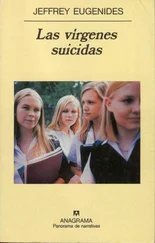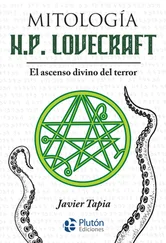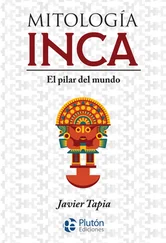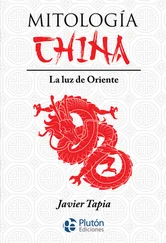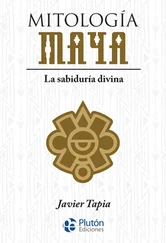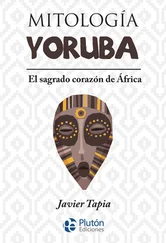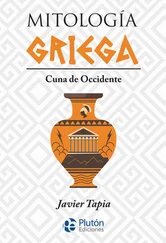* * *
There it is again: the chlorine smell. Under the nasally significant odor of the girl sitting astride his lap, distinct, even, from the buttery popcorn smell that still pervades the old movie seats, Mr. Go can detect the unmistakable scent of a swimming pool. In here? In Sixty-Niners? He sniffs. Flora, the girl on his lap, says, “Do you like my perfume?” But Mr. Go does not answer. Mr. Go has a way of ignoring the girls he pays to wiggle in his lap. What he likes best is to have one girl frog-kicking on top of him while he watches another girl dancing around the glittery firemen’s pole on the stage. Mr. Go is multitasking. But tonight he is unable to divide his attentions. The swimming pool smell is distracting him. It has done so for over a week. Turning his head, which is gently bobbing under Flora’s exertions, Mr. Go looks at the line forming before the velvet rope. The fifty or so theater seats here in the Show Room are almost entirely empty. In the blue light only a few men’s heads are visible, some alone facing the stage, a few like Mr. Go with a companion riding them: those peroxide equestriennes.
Behind the velvet rope rises a flight of stairs edged with blinking lights. To climb these stairs you must pay a separate admission of five dollars. Upon reaching the club’s second floor (Mr. Go has been told), your only option is to enter a booth, where it is then necessary to insert tokens, which you must buy downstairs for a quarter each. If you do all this, you will be afforded brief glimpses of something Mr. Go does not quite understand. Mr. Go’s English is more than adequate. He has lived in America for fifty-two years. But the sign advertising the attractions upstairs doesn’t make much sense to him. For that reason he is curious. The chlorine smell only makes him more so.
Despite the increased traffic going upstairs in recent weeks, Mr. Go has not yet gone himself. He has remained faithful to the first floor where, for the single admission price of ten dollars, he has a choice of activities. Mr. Go might, if he so desires, quit the Show Room and go into the Dark Room at the end of the hall. In the Dark Room there are flashlights with pinpoint beams. There are huddled men, wielding said flashlights. If you work your way in far enough, you will find a girl, or sometimes two, lying on a riser carpeted in foam rubber. Of course it is in some sense an act of faith to postulate the existence of an actual girl, or even two. You never see a complete girl in the Dark Room. You see only pieces. You see what your flashlight illuminates. A knee, for instance, or a nipple. Or, of particular interest to Mr. Go and his fellows, you see the source of life, the thing of things, purified as it were, without the clutter of a person attached.
Mr. Go might also venture into the Ball Room. In the Ball Room there are girls who long to slow-dance with Mr. Go. He doesn’t care for disco music, however, and at his age tires easily. It is too much effort to press the girls up against the padded walls of the Ball Room. Mr. Go much prefers to sit in the Show Room, in the stained Art Deco theater seats that originally belonged to a movie house in Oakland, now demolished.
Mr. Go is seventy-three years old. Every morning, to retain his virility, he drinks a tea containing rhinoceros horn. He also eats the gall bladders of bears when he can get them at the Chinese apothecary shop near his apartment. These aphrodisiacs appear to work. Mr. Go comes into Sixty-Niners nearly every night. He has a joke he likes to tell the girls who sit on his lap. “Mr. Go go for go-go.” That is the only time he laughs or smiles, when he tells them that joke.
If the club is not crowded—which it rarely is downstairs anymore—Flora will sometimes give Mr. Go her company for three or four songs. For a dollar she will ride him for one song, but she will sit through one or two more songs for free. This is one of Flora’s recommendations in Mr. Go’s mind. She is not young, Flora, but she has nice, clear skin. Mr. Go feels she is healthy.
Tonight, however, after only two songs, Flora slides off Mr. Go, grumbling. “I’m not a credit bureau, you know.” She stalks off. Mr. Go rises, adjusting his pants, and right then the swimming pool smell hits him again and his curiosity gets the better of him. He shuffles out of the Show Room and gazes up the stairs at the printed sign:
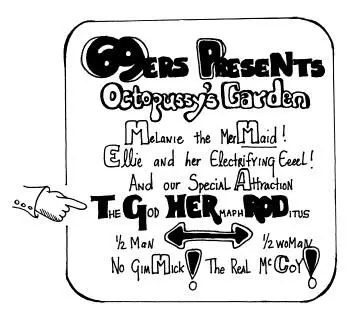
And now Mr. Go’s curiosity has gotten the better of him. He buys a ticket and a handful of tokens and waits in line with the others. When the bouncer lets him through, he climbs up the blinking stairs. The booths on the second floor have no numbers, only lights indicating whether they are occupied. He finds an empty one, closes the door behind him, and puts a token in the slot. Immediately, the screen slides away to reveal a porthole looking onto underwater depths. Music plays from a speaker in the roof and a deep voice begins narrating a story:
“Once upon a time in ancient Greece, there was an enchanted pool. This pool was sacred to Salmacis, the water nymph. And one day Hermaphroditus, a beautiful boy, went swimming there.” The voice continues, but Mr. Go is no longer paying attention. He is looking into the pool, which is blue and empty. He is wondering where the girls are. He is beginning to regret buying a ticket to Octopussy’s Garden. But just then the voice intones:
“Ladies and Gentlemen, behold the god Hermaphroditus! Half woman, half man!”
There is a splash from above. The water in the pool goes white, then pink. Only inches away on the other side of the porthole’s glass is a body, a living body. Mr. Go looks. He squints. He presses his face right up to the porthole. He has never seen anything like what he is seeing now. Not in all his years of visiting the Dark Room. He isn’t sure he likes what he sees. But the sight makes him feel strange, light-headed, weightless, and somehow younger. Suddenly the screen slides shut. Without hesitation Mr. Go drops another token in the slot.
San Francisco’s Sixty-Niners, Bob Presto’s club: it stood in North Beach, within view of the skyscrapers downtown. It was a neighborhood of Italian cafés, pizza restaurants, and topless bars. In North Beach you had the glitzy strip palaces like Carol Doda’s with her famous bust outlined on the marquee. Barkers on the sidewalks collared passersby: “Gentlemen! Come in and see the show! Just have a look. Doesn’t cost anything to have a look.” While the guy outside the next club was shouting, “Our girls are the best, right this way through the curtain!” And the next, “Live erotic show, gentlemen! Plus in our establishment you can watch the football game!” The barkers were all interesting guys, poets manqués, most of them, and spent their time off in City Lights Bookstore, leafing through New Directions paperbacks. They wore striped pants, loud ties, sideburns, goatees. They tended to resemble Tom Waits, or maybe it was the other way around. Like Mamet characters, they populated an America that had never existed, a kid’s idea of sharpies and hucksters and underworld life.
It is said: San Francisco is where young people go to retire. And though it would certainly add color to my story to present a descent into a seamy underworld, I can’t fail to mention that the North Beach Strip is only a few blocks long. The geography of San Francisco is too beautiful to allow seaminess to get much of a foothold, and so along with these barkers there were many tourists afoot, tourists carrying loaves of sourdough bread and Ghirardelli chocolates. In the daytime there were roller-skaters and hackey sack players in the parks. But at night things got a little seamy at last, and from 9P.M. to three in the morning the men streamed into Sixty-Niners.
Читать дальше
Конец ознакомительного отрывка
Купить книгу


